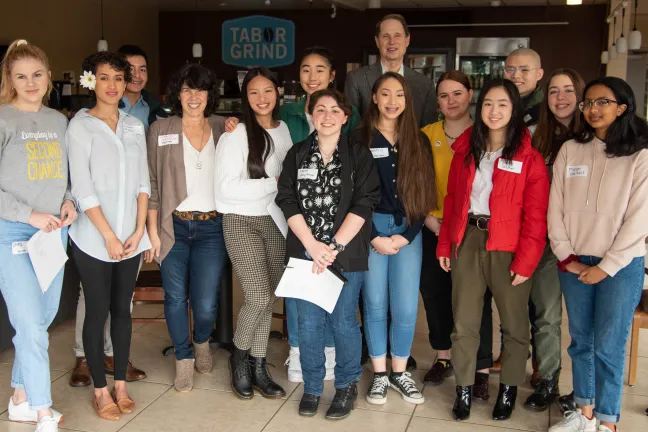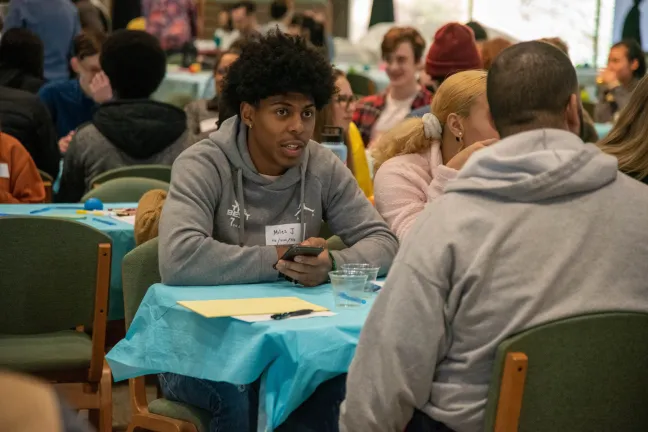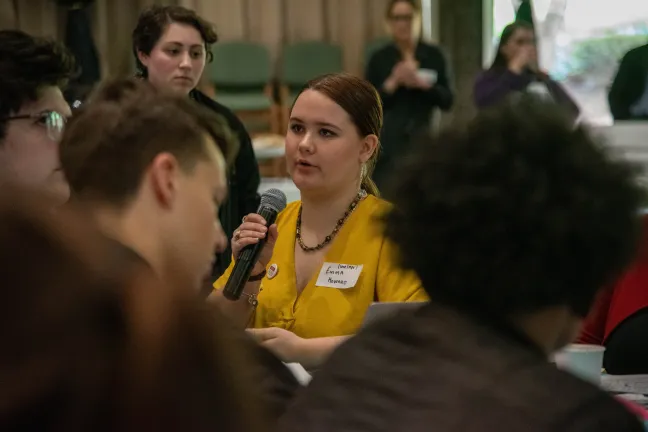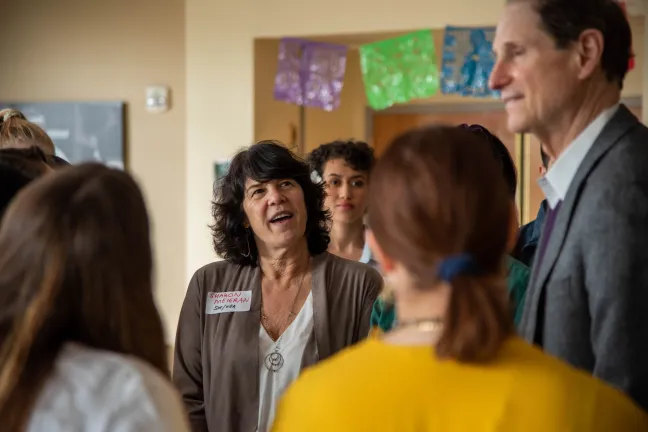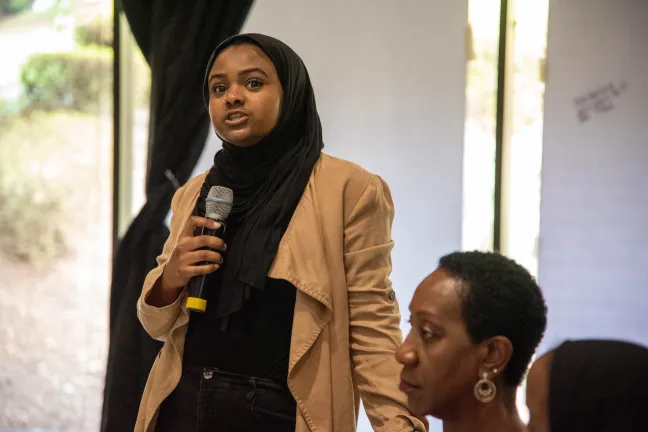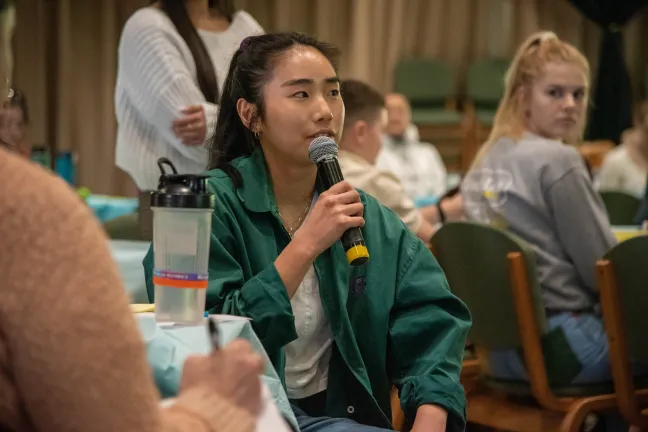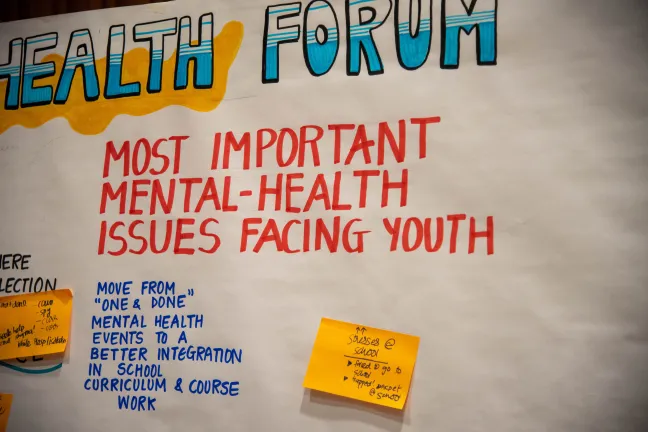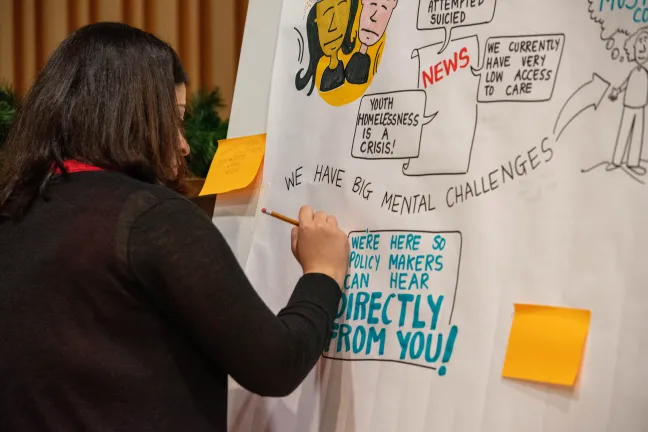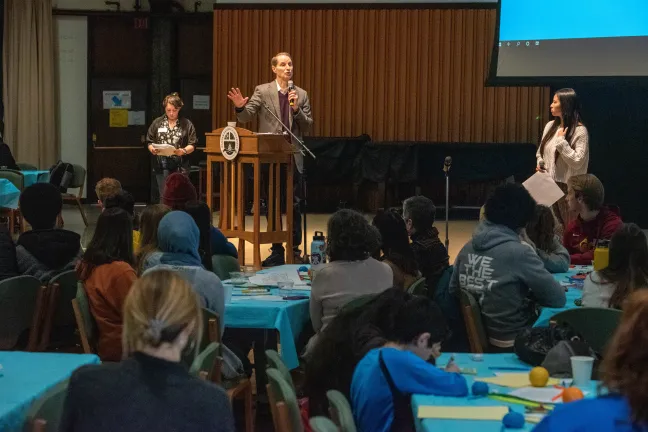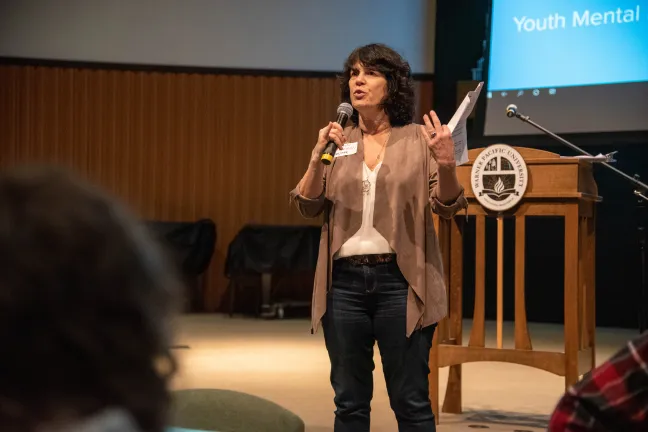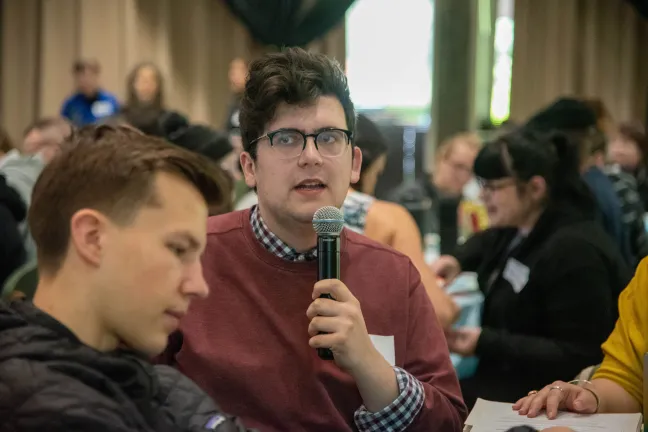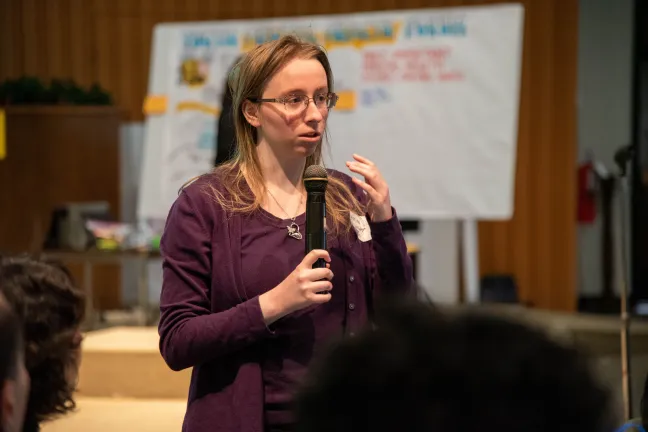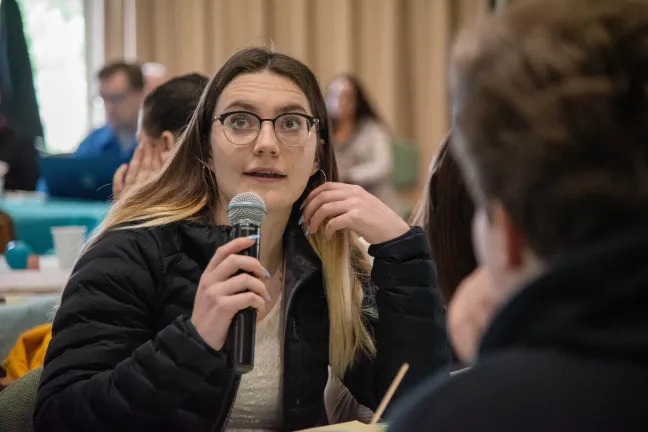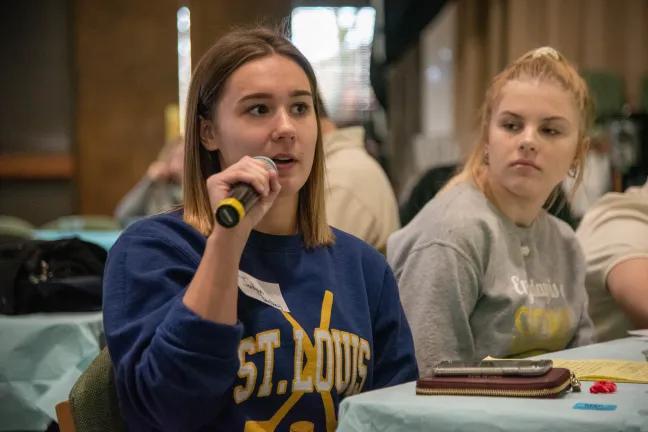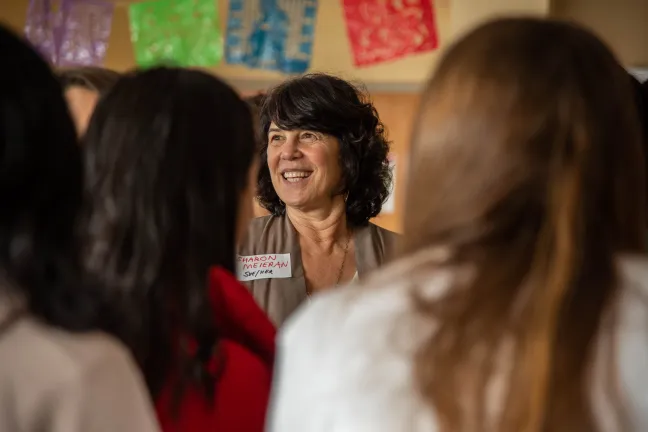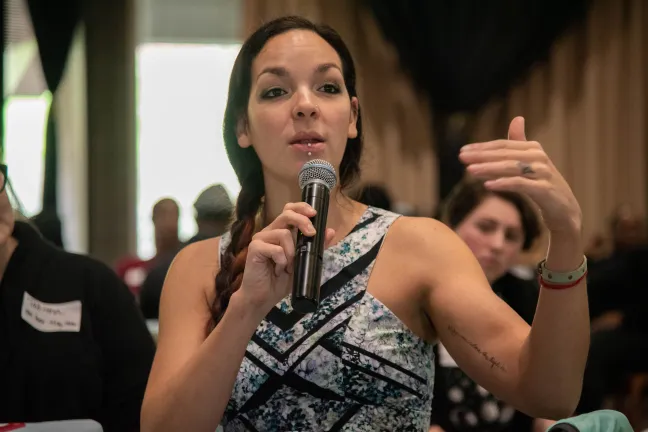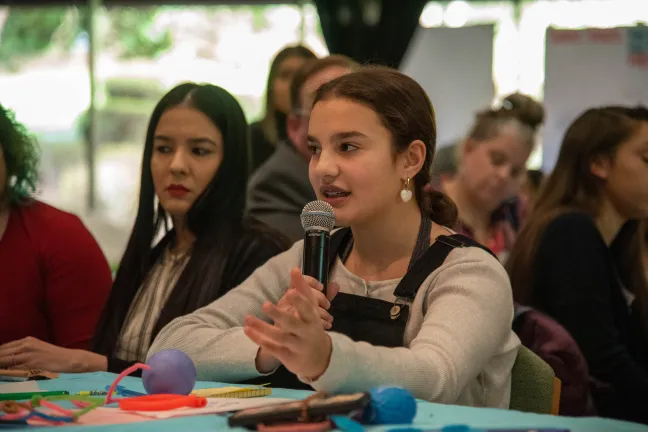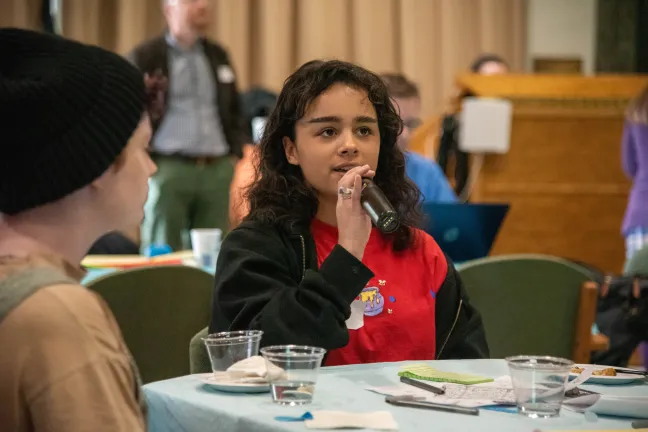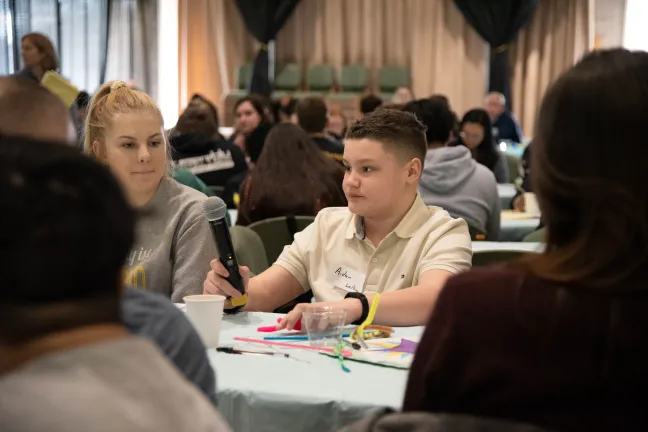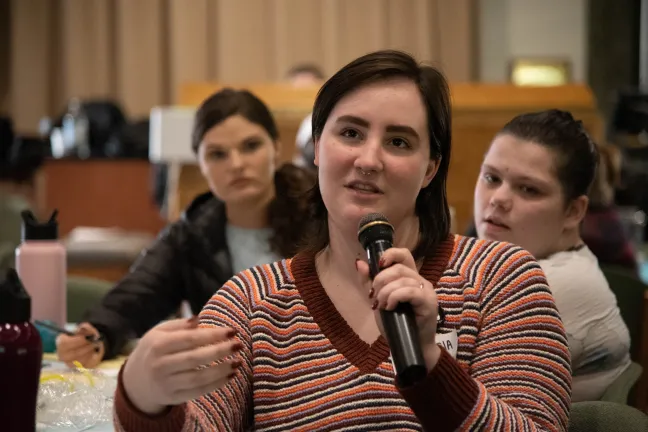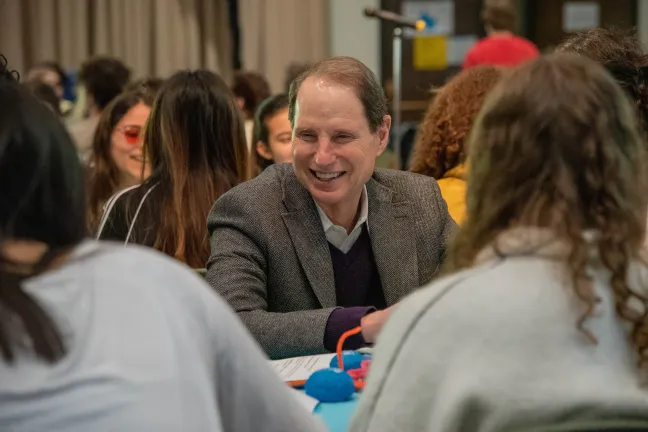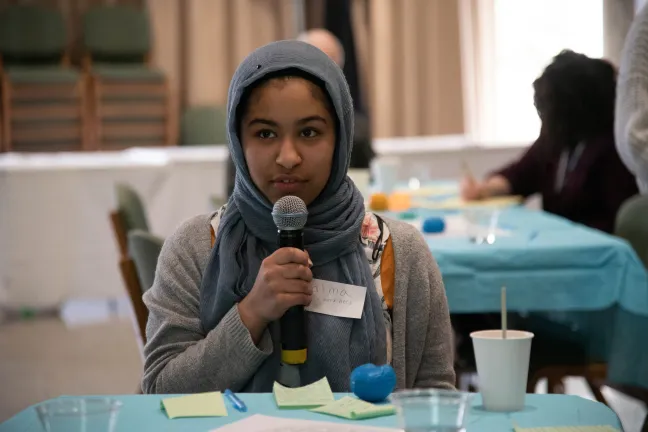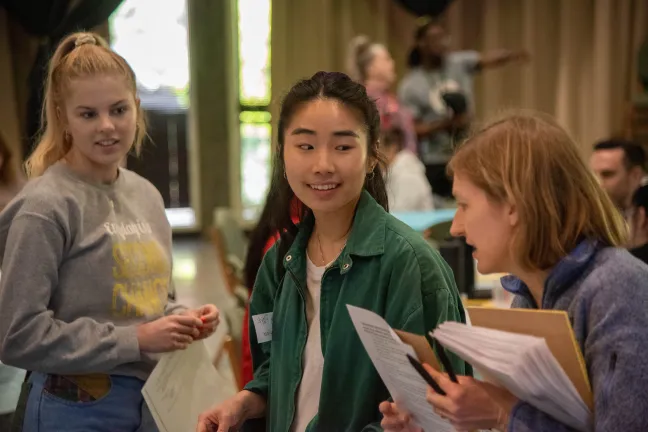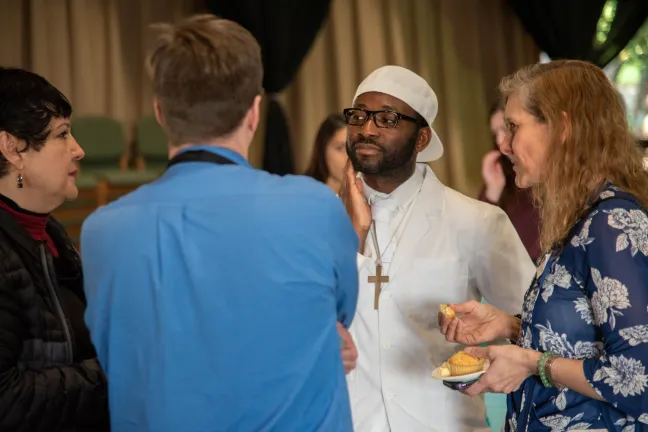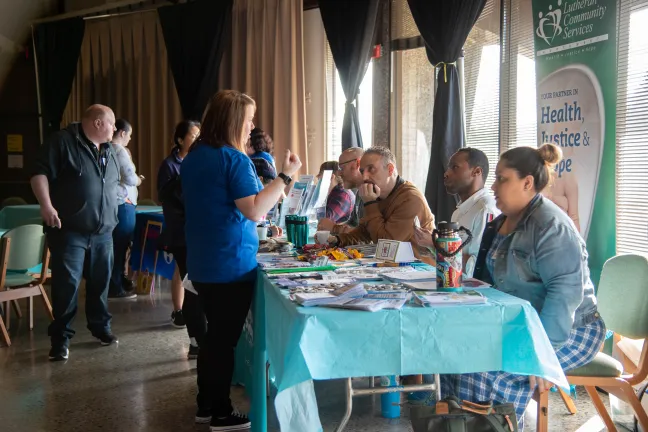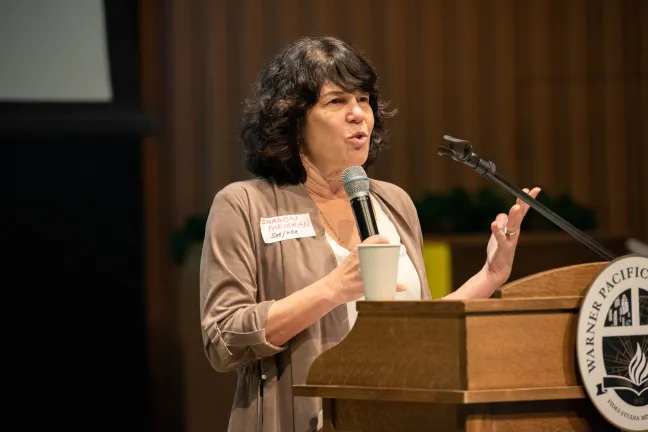Young people talked about the need to talk about mental health and the barriers to doing that: the lack of access to counselors, resources for parents and teachers, and few tools for dealing with pressure from social media and other sources.
“One of the most important things that anyone can do, especially adults and policy makers and parents and guardians, is to take the emphasis off of mental illness being something that is wrong with a child or something that is bad about them. Instead place the emphasis on it being something that is different and unique about them, and maybe it is inhibiting them from living the best quality life that they could.” said Emma H.
Emma spoke at Multnomah County’s first-ever youth forum on mental health on Saturday, Feb. 22. The event was sponsored by Commissioner Sharon Meieran,who said that as a mom, as an emergency room doctor, and as a County Commissioner, youth mental health matters She held the event so policymakers could hear directly from youth.
More than 230 young people and adults joined Commissioner Meieran and U.S. Sen. Ron Wyden at the summit at McGuire Auditorium at Warner Pacific University.
Sen Wyden said, “youth mental health is a must-have conversation, not just because of statistics, but also because we know that this is going to be an increasing challenge given the stress of modern society.”
Commissioner Meieran is a practicing emergency physician who has used her experience on the front line caring for those in crisis to inform her policy and advocacy work in mental health care, substance abuse prevention coordination of services for the most vulnerable, and other policy areas. In 2018, she led the completion of a major County report on its mental health care system, uncovering a disconnect between the system’s aims and how the system is experienced by a significant number of stakeholders. The report found challenges related to addressing youth mental health, especially with high school-age youth. Commissioner Meieran sponsored the Forum to hear directly from young people about the issues they face and their ideas for solutions. “I wanted to work with Senator Wyden to create a forum where policymakers and educational leaders can hear directly from you,” she said at the Forum.
The event started with comments by two moderators, Madison High School student Jason Anajovich and David Douglas High School student Vivian Le. Senator Wyden and Commissioner Meieran spoke briefly, then youth table facilitators led small group discussions to gather ideas and insights about three discussion questions from the youth who were present. One or two policymakers sat at each table to listen to the youth-led discussion. After each small group discussion, youth offered comments in the large group. Graphic facilitator Nitya Wakhlu recorded the comments, creating a visual representation of the discussion.
Jason Anajovich said, “I wanted to be here today because every single person in my immediate family myself included lives with mental illness. Every friend I have at school lives with MH and it took 17 years for people to finally tell me the language I needed to use in order to understand what I thought was wrong with me...It took people 17 years to explain to me that what I’m feeling is not how I should have to be living life. No one should have to go through that.”
Table facilitator Jesse F. noted, “our group came up with two main things. One of them was wanting to address that communication factor about talking about mental health. The other was social media and the impacts of seeing everyone else who seems to have this perfect life happening whereas you may not have everything. That idea of seeing everyone else's achievements and feeling like maybe you aren’t enough.”
Mental health peer advocate Kevin Fitts attended the Forum to hear from youth. He said, “there are some kids who don’t feel like they are cool, and fitting in is so important and if you don’t fit in on that structure it just takes for granted that every kid has the same experience.”
Among the policymakers who attended were State Sen. Lew Frederick; State Reps. Andrea Salinas and Tawna Sanchez; Gov. Kate Brown’s K-12 education advisor, Lindsey Capps; State of Oregon Youth Development Director Serena Stoudamire Wesley; Portland Public School Board Members Julia Brim-Edwards, Eilidh Lowery, and Rita Moore; Gresham-Barlow School Board Member Amanda Orozco-Beach; Multnomah Education Service District Director Katrina Doughty; Multnomah County Health Department Director Patricia Charles-Heathers; and Multnomah County Mental Health and Addiction Services Division Director Ebony Clarke.
“I want to thank everyone who attended the event today,” said Commissioner Meieran. “I was truly amazed by the courage, brilliance, creativity, and strength of each of the young people who showed up. They shared important reflections and ideas that we captured during the event.”
Commissioner Meieran’s office will compile the notes and ideas gathered during the event and share the summary with everyone who attended, as well as policymakers and education leaders. She looks forward to opportunities to advocate for ideas raised by the youth and offering future opportunities to engage youth directly in this advocacy.
